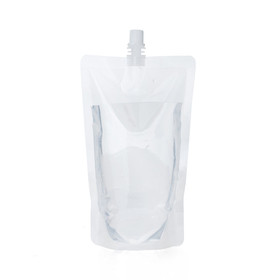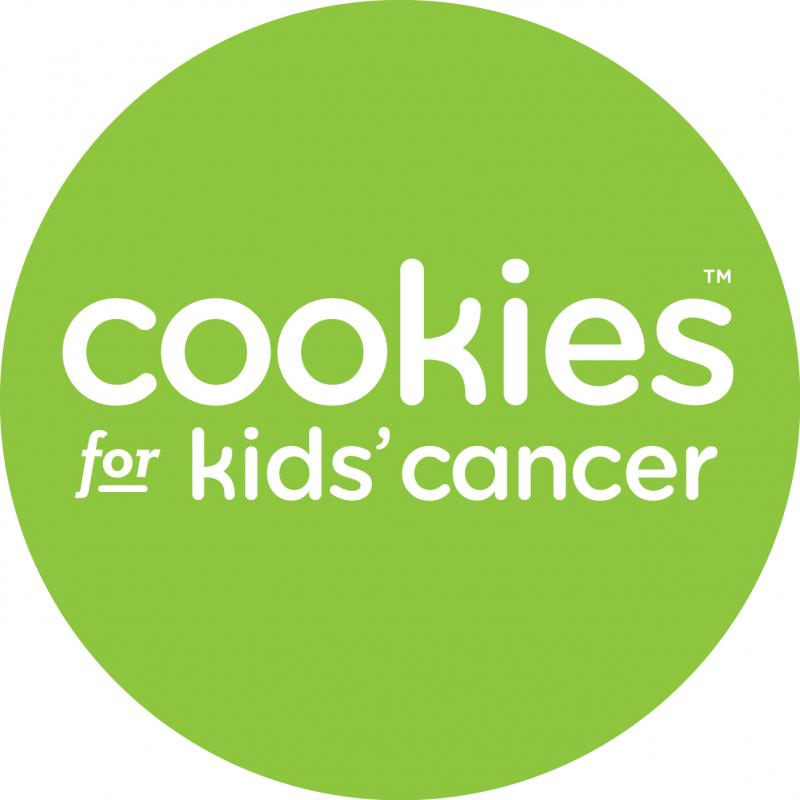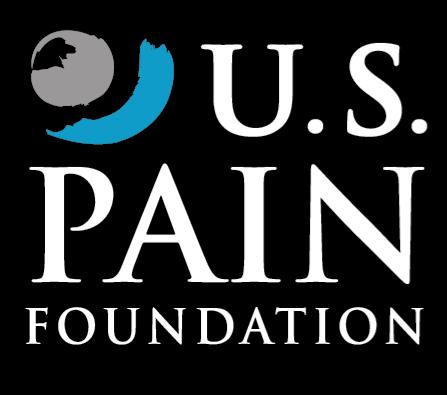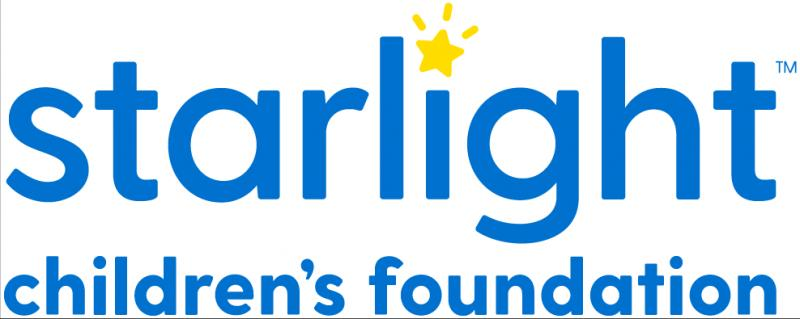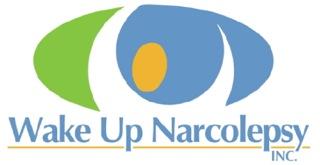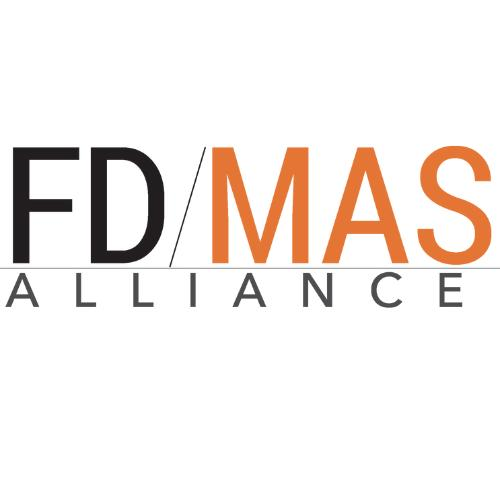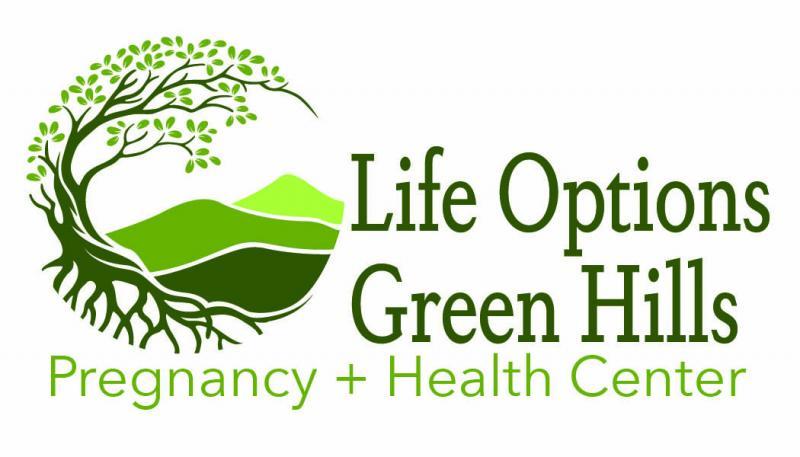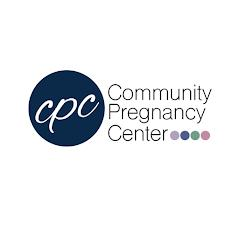Causes: Health, Specialty Hospitals
Mission: Boston children's hospital (bch) is the nation's premier pediatric hospital and research enterprise. We serve as the community hospital for the children of boston; provide specialty pediatric care throughout the region; and offer access to innovative, life saving care to children across the world facing rare and complex conditions. Bch's vision is to advance pediatric care and research--both in our local neighborhoods and worldwide-through a commitment to innovation, science-based care and quality improvement. All of our activities are driven by four interwoven missions: providing access to safe, high quality, compassionate and innovative clinical care to children; researching new cures and treatments for diseases and methods of care delivery; training the next generation of pediatric caregivers; and improving the health and well being of children, with a special emphasis on helping the children of boston grow and learn in safe, healthy environment.
Programs: Clinical care: the services we offer - from well child visits and treatment for typical child health issues (broken bones, tonsillitis, etc. ) to chronic care (asthma, diabetes, obesity, etc. ) & specialty services (oncology, cardiology, neurology) - benefit from our clinicians' high level of specialization, our collaboration with research scientists (many of whom are also physicians) affiliated with the hospital, and our significant investments in equipment, facilities and clinical & support staff. Our team has a deep commitment to setting the bar for quality & safety & exceeding the expectations of our patients & their families for service, undertaking significant investments in each of these areas. Annually, bch sees: 24,372 bedded cases at our main campus; 970 bedded cases at our satellites and 622,131 combined outpatients at main campus & satellites; 32,784 patients in our community health clinic. Of the bedded cases, more than 16.8% (cmi > 2.00) can be qualified as clinically complex. Of these patients, approximately 33% (patients on medicaid/medicare) are considered low income. Bch is the safety net institution for very sick children throughout the region, supporting the entire health care system for the most complex pediatric cases. We receive referrals from community hospitals as well as from other academic medical centers throughout new england. 25% of our inpatients are transferred from hospitals & medical centers across massachusetts for care that no one else can provide. Bch is the single largest provider of care to children enrolled in the medicaid program, caring for approximately 30% of all pediatric medicaid patients statewide, including many of the sickest children in the state. Bch also provides clinical care for the largest number of uninsured children in the state; total free care & losses from medicaid in fy2017 were approximately $109 million. Increasingly, we have been able to care for & improve life & health outcomes for medically complex children, many with conditions such as congenital heart conditions, childhood cancers & complex neurological & neurosurgical conditions. Our capabilities are accelerating rapidly as we develop new clinical & surgical approaches including gene therapies, stem cell transplant procedures, fetal surgical interventions, and the like. Bch is at the absolute forefront nationally in these & many other areas. As a result, we have seen significant growth in the number of complex patients served-patients who stay longer, require more resources (such as intensive care unit-level care), use a broader range of interdisciplinary specialists, and frequently require substantial support for their whole family. Some of them travel great distances, but equally many are from here in massachusetts. We've attempted to manage these trends by delivering care in lower cost settings including community hospitals that we help support, and by transitioning inpatient care to multi-specialty outpatient settings where possible. We've built care teams that work effectively across disciplines. We've strived to create a more welcoming and family-centered environment for children & families on the longwood campus. We need to do more. Recognizing the difficulties that community-based hospitals face in providing specialized pediatric care (which requires significant investments in staff, equipment & training), bch has formed partnerships with 5 community hospitals throughout eastern massachusetts, including beverly hospital, winchester hospital & south shore hospital. Additionally, our physicians see patients at massachusetts general hospital. With approximately 100 physicians serving those community hospitals, we enhance the community's-and the state's-ability to provide access to emergency, neonatal, inpatient & outpatient specialty services for children. Bch also operates satellite facilities in lexington, north dartmouth, peabody & waltham where we offer specialized care in cardiology, gastroenterology, neurology, respiratory diseases, diabetes, orthopedic surgery, urology, behavioral health and other specialties, as well as martha eliot health center, our community health center in jamaica plain. In addition, our physicians offer outpatient services at our physician office locations in brockton, milford, norwood & weymouth. In addition, our bch physicians partnership is a multi-specialty, pediatric practice with strong medical & academic roots, whose more than 276 physicians serve families in 57 locations throughout new york's metropolitan area, the hudson valley, connecticut and new jersey. Each year, bch improves the quality of the clinical care it provides by recruiting talented staff, investing in cutting-edge equipment & technology, undertaking safety & quality initiatives, supporting community health programs & ensuring that our facilities make the care process easier & more comfortable for all the patients & families we serve. For example:focus on quality and safety: at bch, a dedication to quality & patient safety is embedded in everything we do. We continuously measure & track our performance in order to improve the care we provide. We believe measurement is essential for providing world-class care. If we don't track how we're doing, we can't identify areas of care that need improvement. And we can't identify high-performing areas that could serve as a model throughout bch & the health care industry as a whole. By closely watching our quality & safety outcomes, we push ourselves to get better every day & raise the standard of care everywhere. We are committed to transparency in our efforts to constantly improve quality & safety, and clinical departments at bch publish information on both in their own sections of our website. We value the insights of parents, patients & families when it comes to quality & safety. Parents know their child best, and they often have excellent ideas about how care can be improved. Adult family members, and children who are old enough, are encouraged to voice their observations, opinions or concerns to members of the care team. Doctors, nurses, researchers & administrators throughout bch are continually exploring new ways of improving the quality of care we provide. Whenever possible, we share our successes & breakthroughs with the wider world, so that other health care professionals can learn from our experience and join us in raising the standard of care for children everywhere. In addition, bch is engaged in an ongoing enterprise-wide commitment, extending to all staff as well as patients and families, to be a high reliability organization, one where zero preventable harm will occur to any patient, family member or team member. In fy17, we achieved a significant goal in our work to become a high reliability organization, when 100% of our boch team members completed error prevention training. Recognizing the need to sustain these efforts to make every moment matter, error prevention training for new hires began in may 2017.Error prevention training is now included in new hire orientation for all employees. In 2017, bch began to post weekly updates of the high reliability metrics of days since its' last serious safety event (sse) and employee serious safety event (esse). Foster innovation: through the creation of the innovation and digital health accelerator, bch reinforces a commitment to, and investment in pediatric innovation. We are combining our data, clinical expertise, and health care technology development experience, with leading worldwide industry partners - including start-ups - to transform health care. We work to surface, support and accelerate bch's innovations for the purpose of improving pediatric care. Today, there is a new level of investment & urgency behind accelerating innovations & expanding our reach globally. The acceleration process sources innovative ideas from industry and within bch to vet & develop high-priority market competitive solutions with scalable impact. Leveraging extensive business & technical capabilities, innovation digital health accelerator identifies viable commercialization pathways for prioritized innovations, including digital health, medical devices, diagnostic technologies & care process innovations. The team then provides the resources, including grant funding, oversight & momentum to accelerate development & commercialization. The accelerator provides multiple resources for bch's employees, as well as industry startups, including:- the innovator's roadmap - a commercialization roadmap meant to help clarify the commercialization process and guide innovators towards helpful resources. - accelerator grant program - every year, up to $250,000 in aggregate funding and software development time is available for innovative ideas in clinical practice or research with commercial potential. - innovation office hours -an open door when it comes to great ideas.
research: boston children's is dedicated to enhancing the wellbeing of children and families by leading research and innovation around child health issues, and by seeking new approaches to the prevention, diagnosis and treatment of childhood and adult diseases. With over $368 million in annual funding-more than any other pediatric hospital-and more than 1 million square feet of research space, boston children's is home to the world's largest and most active research enterprise at a pediatric center. Boston children's research mission encompasses basic research, clinical research, community service programs and the postdoctoral training of new scientists. While the national institutes of health is our largest sponsor, boston children's has made a significant investment of more than $32 million towards supporting its research activities in 2017.Our investigators hold numerous prestigious honors and awards, including many "research firsts. " in our laboratories and clinics, hundreds of scientists seek to identify the factors that contribute to both childhood and adult diseases and to develop effective treatments for them. Our investigators are harvard medical school faculty-basic scientists, clinical researchers and epidemiologists-who are accelerating the pace of medical discovery from brainstorm to bench to bedside. Our researchers were the first to develop 10 new disease-based stem cell lines by reprogramming adult stem cells that can be used to study treatments for diseases ranging from parkinson's to diabetes. Clinicians and researchers at boston children's work with colleagues throughout the medical community to translate basic science research into applications for clinical care. These projects frequently have applications that go beyond pediatrics to impact adult care as well. For example:- a gene therapy trial to treat cerebral adrenoleukodystrophy (cald)-a neurodegenerative disease that typically claims young boys' lives within 10 years of diagnosis-has halted the disease's progression in 88 percent of patients. - new research suggests that genetic mutations to an "epithelial sodium pathway" could protect against cystic fibrosis and its debilitating effects on the lungs. - a 30-minute mobile screening app could allow dyslexia "checkups" at age 4 or 5 during well visits, based on research-proven tests. - a gene therapy known as car t-cell therapy to treat pediatric acute lymphoblastic leukemia (all). - a study of chronic inflammation caused by lupus revealed a potential drug that could protect the brain from inflammation caused by central nervous system (cns) diseases, infection and maybe even everyday stress. - a robotic sleeve that can help hearts pump when they are failing. The sleeve-made of material that mimics heart muscle-hugs the outside of the heart and squeezes it, mimicking the action of cardiac muscle.
teaching:over the course of the year, 480 residents, clinical fellows and interns came to boston children's from around the world. These men and women are selected for their potential leadership in their respective fields and their commitment to advancing the frontiers of pediatric care. In fact, a 24-year analysis of residents who have graduated from our department of medicine found that roughly 40% go on to become leaders in academic medicine, filling positions such as deans, chairs and program heads across the country. Over a third of the chiefs of pediatric departments across the country trained at boston children's. We train individuals throughout all areas of the care continuum, including medical students, interns, residents, fellows, nursing students and community pediatricians. We provide continuing professional education for all of our clinical staff. Boston children's offers the only training programs in massachusetts for: adolescent medicine, medical biochemical genetics, neurodevelopmental disabilities, pediatric cardiology, pediatric hematology/oncology, pediatric nephrology, pediatric orthopedics, pediatric pathology, pediatric surgery, pediatric sports medicine, pediatric urology, pediatric transplant hepatology and congenital cardiac surgery. Boston children's offers the only training programs in new england for adolescent medicine, medical biochemical genetics, neurodevelopmental disabilities, pediatric sports medicine, pediatric urology, pediatric transplant hepatology and congenital cardiac surgery. Boston children's has the largest accredited training programs in the country for pediatric anesthesiology, pediatric cardiology and pediatric otolaryngology. The hospital also has the largest accredited training program in child neurology in new england. The pediatric simulator program at boston children's hospital is the first hospital-based simulator at a teaching hospital in new england. It is accredited by the american society of anesthesiologists (asa), the first pediatric center to be endorsed, and one of only 31 asa endorsed centers nationwide. The simulation suite is a dual-purpose simulation laboratory and procedure room with an adjacent control room and conference room located within a state-of-the-art medical surgical intensive care unit. Boston children's pediatric sports medicine is one of only 28 accredited pediatric sports medicine programs in the country and neurodevelopmental disabilities is one of only 13 accredited neurodevelopmental disabilities programs in the country. Congenital cardiac surgery is one of 11 in the country, pediatric transplant hepatology is one of 7 in the country, and medical biochemical genetics is one of 16 in the country. Boston children's hospital is also home to one of only 7 pediatrics/anesthesia combined residencies in the country - and the only one in new england. Our combined pediatrics/medical genetics combined residencies is one of 19 in the country, and the only one in massachusetts. Our clinical informatics training program is one of only 5 pediatrics-based clinical informatics training programs in the country, and is the only such program in new england. In addition, boston children's hospital is accredited by the accreditation council for continuing medical education (accme) and designed to provide continuing education for physicians. Continuing medical education (cme) is an essential component in boston children's continuum of undergraduate, graduate and continuing medical education. Boston children's, through its cme department, offers many opportunities for health care professionals to continue their professional development education and training. Our goal is to assist health care professionals achieve the best medical outcomes for patients and families.
Mission: Boston children's hospital (bch) is the nation's premier pediatric hospital and research enterprise. We serve as the community hospital for the children of boston; provide specialty pediatric care throughout the region; and offer access to innovative, life saving care to children across the world facing rare and complex conditions. Bch's vision is to advance pediatric care and research--both in our local neighborhoods and worldwide-through a commitment to innovation, science-based care and quality improvement. All of our activities are driven by four interwoven missions: providing access to safe, high quality, compassionate and innovative clinical care to children; researching new cures and treatments for diseases and methods of care delivery; training the next generation of pediatric caregivers; and improving the health and well being of children, with a special emphasis on helping the children of boston grow and learn in safe, healthy environment.
Programs: Clinical care: the services we offer - from well child visits and treatment for typical child health issues (broken bones, tonsillitis, etc. ) to chronic care (asthma, diabetes, obesity, etc. ) & specialty services (oncology, cardiology, neurology) - benefit from our clinicians' high level of specialization, our collaboration with research scientists (many of whom are also physicians) affiliated with the hospital, and our significant investments in equipment, facilities and clinical & support staff. Our team has a deep commitment to setting the bar for quality & safety & exceeding the expectations of our patients & their families for service, undertaking significant investments in each of these areas. Annually, bch sees: 24,372 bedded cases at our main campus; 970 bedded cases at our satellites and 622,131 combined outpatients at main campus & satellites; 32,784 patients in our community health clinic. Of the bedded cases, more than 16.8% (cmi > 2.00) can be qualified as clinically complex. Of these patients, approximately 33% (patients on medicaid/medicare) are considered low income. Bch is the safety net institution for very sick children throughout the region, supporting the entire health care system for the most complex pediatric cases. We receive referrals from community hospitals as well as from other academic medical centers throughout new england. 25% of our inpatients are transferred from hospitals & medical centers across massachusetts for care that no one else can provide. Bch is the single largest provider of care to children enrolled in the medicaid program, caring for approximately 30% of all pediatric medicaid patients statewide, including many of the sickest children in the state. Bch also provides clinical care for the largest number of uninsured children in the state; total free care & losses from medicaid in fy2017 were approximately $109 million. Increasingly, we have been able to care for & improve life & health outcomes for medically complex children, many with conditions such as congenital heart conditions, childhood cancers & complex neurological & neurosurgical conditions. Our capabilities are accelerating rapidly as we develop new clinical & surgical approaches including gene therapies, stem cell transplant procedures, fetal surgical interventions, and the like. Bch is at the absolute forefront nationally in these & many other areas. As a result, we have seen significant growth in the number of complex patients served-patients who stay longer, require more resources (such as intensive care unit-level care), use a broader range of interdisciplinary specialists, and frequently require substantial support for their whole family. Some of them travel great distances, but equally many are from here in massachusetts. We've attempted to manage these trends by delivering care in lower cost settings including community hospitals that we help support, and by transitioning inpatient care to multi-specialty outpatient settings where possible. We've built care teams that work effectively across disciplines. We've strived to create a more welcoming and family-centered environment for children & families on the longwood campus. We need to do more. Recognizing the difficulties that community-based hospitals face in providing specialized pediatric care (which requires significant investments in staff, equipment & training), bch has formed partnerships with 5 community hospitals throughout eastern massachusetts, including beverly hospital, winchester hospital & south shore hospital. Additionally, our physicians see patients at massachusetts general hospital. With approximately 100 physicians serving those community hospitals, we enhance the community's-and the state's-ability to provide access to emergency, neonatal, inpatient & outpatient specialty services for children. Bch also operates satellite facilities in lexington, north dartmouth, peabody & waltham where we offer specialized care in cardiology, gastroenterology, neurology, respiratory diseases, diabetes, orthopedic surgery, urology, behavioral health and other specialties, as well as martha eliot health center, our community health center in jamaica plain. In addition, our physicians offer outpatient services at our physician office locations in brockton, milford, norwood & weymouth. In addition, our bch physicians partnership is a multi-specialty, pediatric practice with strong medical & academic roots, whose more than 276 physicians serve families in 57 locations throughout new york's metropolitan area, the hudson valley, connecticut and new jersey. Each year, bch improves the quality of the clinical care it provides by recruiting talented staff, investing in cutting-edge equipment & technology, undertaking safety & quality initiatives, supporting community health programs & ensuring that our facilities make the care process easier & more comfortable for all the patients & families we serve. For example:focus on quality and safety: at bch, a dedication to quality & patient safety is embedded in everything we do. We continuously measure & track our performance in order to improve the care we provide. We believe measurement is essential for providing world-class care. If we don't track how we're doing, we can't identify areas of care that need improvement. And we can't identify high-performing areas that could serve as a model throughout bch & the health care industry as a whole. By closely watching our quality & safety outcomes, we push ourselves to get better every day & raise the standard of care everywhere. We are committed to transparency in our efforts to constantly improve quality & safety, and clinical departments at bch publish information on both in their own sections of our website. We value the insights of parents, patients & families when it comes to quality & safety. Parents know their child best, and they often have excellent ideas about how care can be improved. Adult family members, and children who are old enough, are encouraged to voice their observations, opinions or concerns to members of the care team. Doctors, nurses, researchers & administrators throughout bch are continually exploring new ways of improving the quality of care we provide. Whenever possible, we share our successes & breakthroughs with the wider world, so that other health care professionals can learn from our experience and join us in raising the standard of care for children everywhere. In addition, bch is engaged in an ongoing enterprise-wide commitment, extending to all staff as well as patients and families, to be a high reliability organization, one where zero preventable harm will occur to any patient, family member or team member. In fy17, we achieved a significant goal in our work to become a high reliability organization, when 100% of our boch team members completed error prevention training. Recognizing the need to sustain these efforts to make every moment matter, error prevention training for new hires began in may 2017.Error prevention training is now included in new hire orientation for all employees. In 2017, bch began to post weekly updates of the high reliability metrics of days since its' last serious safety event (sse) and employee serious safety event (esse). Foster innovation: through the creation of the innovation and digital health accelerator, bch reinforces a commitment to, and investment in pediatric innovation. We are combining our data, clinical expertise, and health care technology development experience, with leading worldwide industry partners - including start-ups - to transform health care. We work to surface, support and accelerate bch's innovations for the purpose of improving pediatric care. Today, there is a new level of investment & urgency behind accelerating innovations & expanding our reach globally. The acceleration process sources innovative ideas from industry and within bch to vet & develop high-priority market competitive solutions with scalable impact. Leveraging extensive business & technical capabilities, innovation digital health accelerator identifies viable commercialization pathways for prioritized innovations, including digital health, medical devices, diagnostic technologies & care process innovations. The team then provides the resources, including grant funding, oversight & momentum to accelerate development & commercialization. The accelerator provides multiple resources for bch's employees, as well as industry startups, including:- the innovator's roadmap - a commercialization roadmap meant to help clarify the commercialization process and guide innovators towards helpful resources. - accelerator grant program - every year, up to $250,000 in aggregate funding and software development time is available for innovative ideas in clinical practice or research with commercial potential. - innovation office hours -an open door when it comes to great ideas.
research: boston children's is dedicated to enhancing the wellbeing of children and families by leading research and innovation around child health issues, and by seeking new approaches to the prevention, diagnosis and treatment of childhood and adult diseases. With over $368 million in annual funding-more than any other pediatric hospital-and more than 1 million square feet of research space, boston children's is home to the world's largest and most active research enterprise at a pediatric center. Boston children's research mission encompasses basic research, clinical research, community service programs and the postdoctoral training of new scientists. While the national institutes of health is our largest sponsor, boston children's has made a significant investment of more than $32 million towards supporting its research activities in 2017.Our investigators hold numerous prestigious honors and awards, including many "research firsts. " in our laboratories and clinics, hundreds of scientists seek to identify the factors that contribute to both childhood and adult diseases and to develop effective treatments for them. Our investigators are harvard medical school faculty-basic scientists, clinical researchers and epidemiologists-who are accelerating the pace of medical discovery from brainstorm to bench to bedside. Our researchers were the first to develop 10 new disease-based stem cell lines by reprogramming adult stem cells that can be used to study treatments for diseases ranging from parkinson's to diabetes. Clinicians and researchers at boston children's work with colleagues throughout the medical community to translate basic science research into applications for clinical care. These projects frequently have applications that go beyond pediatrics to impact adult care as well. For example:- a gene therapy trial to treat cerebral adrenoleukodystrophy (cald)-a neurodegenerative disease that typically claims young boys' lives within 10 years of diagnosis-has halted the disease's progression in 88 percent of patients. - new research suggests that genetic mutations to an "epithelial sodium pathway" could protect against cystic fibrosis and its debilitating effects on the lungs. - a 30-minute mobile screening app could allow dyslexia "checkups" at age 4 or 5 during well visits, based on research-proven tests. - a gene therapy known as car t-cell therapy to treat pediatric acute lymphoblastic leukemia (all). - a study of chronic inflammation caused by lupus revealed a potential drug that could protect the brain from inflammation caused by central nervous system (cns) diseases, infection and maybe even everyday stress. - a robotic sleeve that can help hearts pump when they are failing. The sleeve-made of material that mimics heart muscle-hugs the outside of the heart and squeezes it, mimicking the action of cardiac muscle.
teaching:over the course of the year, 480 residents, clinical fellows and interns came to boston children's from around the world. These men and women are selected for their potential leadership in their respective fields and their commitment to advancing the frontiers of pediatric care. In fact, a 24-year analysis of residents who have graduated from our department of medicine found that roughly 40% go on to become leaders in academic medicine, filling positions such as deans, chairs and program heads across the country. Over a third of the chiefs of pediatric departments across the country trained at boston children's. We train individuals throughout all areas of the care continuum, including medical students, interns, residents, fellows, nursing students and community pediatricians. We provide continuing professional education for all of our clinical staff. Boston children's offers the only training programs in massachusetts for: adolescent medicine, medical biochemical genetics, neurodevelopmental disabilities, pediatric cardiology, pediatric hematology/oncology, pediatric nephrology, pediatric orthopedics, pediatric pathology, pediatric surgery, pediatric sports medicine, pediatric urology, pediatric transplant hepatology and congenital cardiac surgery. Boston children's offers the only training programs in new england for adolescent medicine, medical biochemical genetics, neurodevelopmental disabilities, pediatric sports medicine, pediatric urology, pediatric transplant hepatology and congenital cardiac surgery. Boston children's has the largest accredited training programs in the country for pediatric anesthesiology, pediatric cardiology and pediatric otolaryngology. The hospital also has the largest accredited training program in child neurology in new england. The pediatric simulator program at boston children's hospital is the first hospital-based simulator at a teaching hospital in new england. It is accredited by the american society of anesthesiologists (asa), the first pediatric center to be endorsed, and one of only 31 asa endorsed centers nationwide. The simulation suite is a dual-purpose simulation laboratory and procedure room with an adjacent control room and conference room located within a state-of-the-art medical surgical intensive care unit. Boston children's pediatric sports medicine is one of only 28 accredited pediatric sports medicine programs in the country and neurodevelopmental disabilities is one of only 13 accredited neurodevelopmental disabilities programs in the country. Congenital cardiac surgery is one of 11 in the country, pediatric transplant hepatology is one of 7 in the country, and medical biochemical genetics is one of 16 in the country. Boston children's hospital is also home to one of only 7 pediatrics/anesthesia combined residencies in the country - and the only one in new england. Our combined pediatrics/medical genetics combined residencies is one of 19 in the country, and the only one in massachusetts. Our clinical informatics training program is one of only 5 pediatrics-based clinical informatics training programs in the country, and is the only such program in new england. In addition, boston children's hospital is accredited by the accreditation council for continuing medical education (accme) and designed to provide continuing education for physicians. Continuing medical education (cme) is an essential component in boston children's continuum of undergraduate, graduate and continuing medical education. Boston children's, through its cme department, offers many opportunities for health care professionals to continue their professional development education and training. Our goal is to assist health care professionals achieve the best medical outcomes for patients and families.
300 Longwood Ave, Boston, MA 02115
617-355-6000

Health
Boston



























